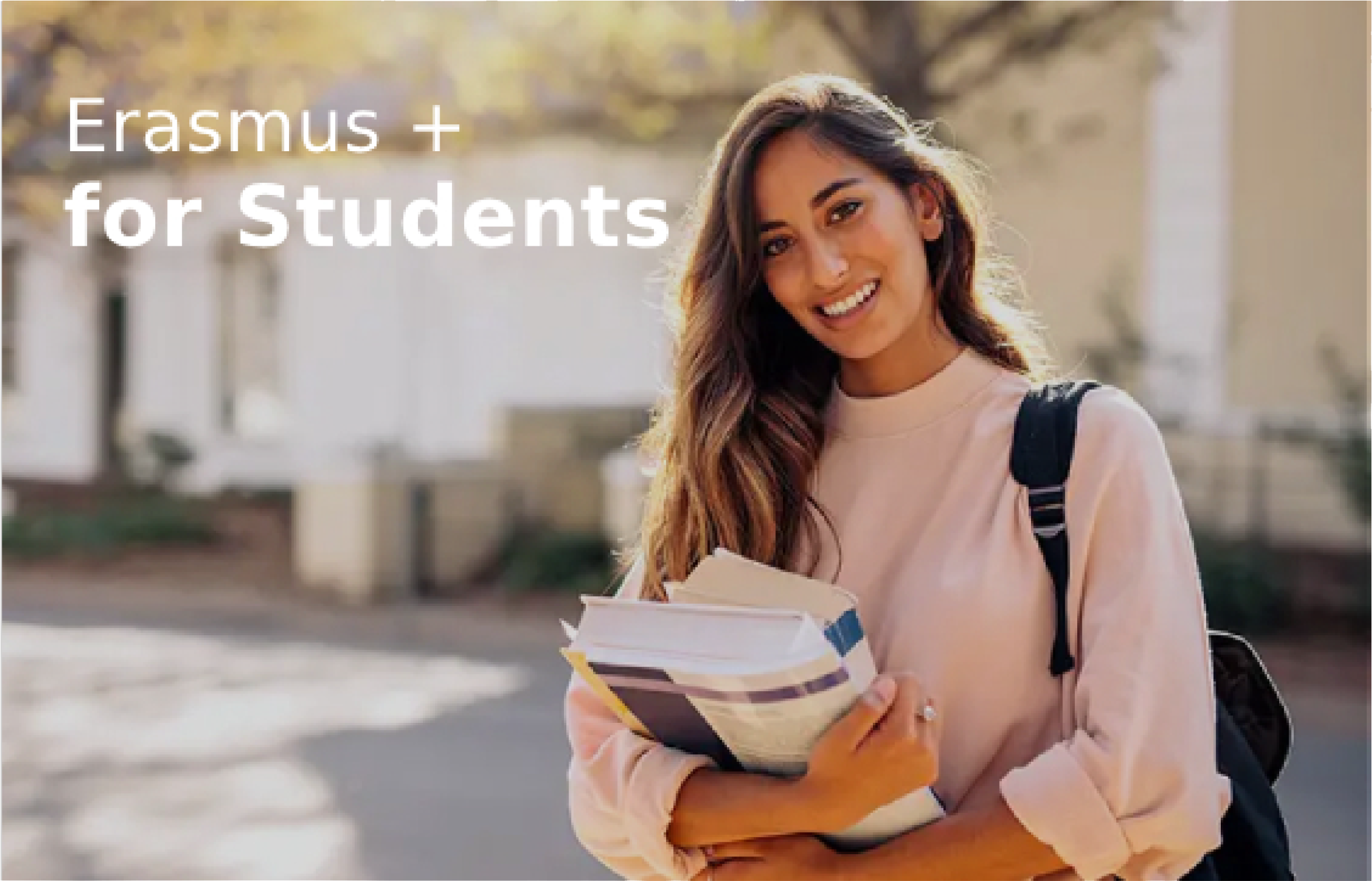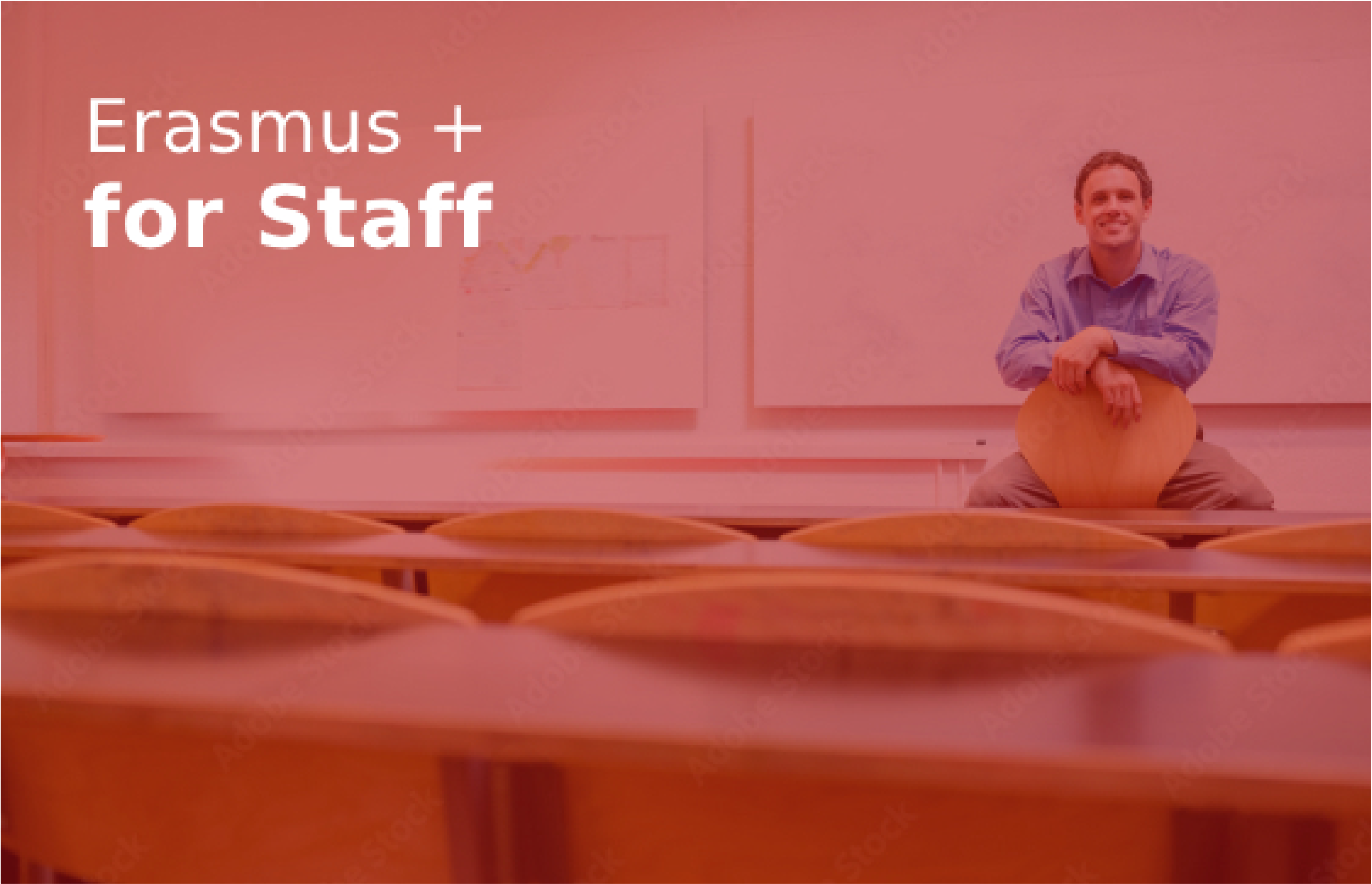Welcome @ Panteion Erasmus+ Office
Τμήμα Διεθνών Σχέσεων και Ευρωπαϊκής Ένωσης
Incoming Students
Incoming Students
Welcome to Panteion University of Social and Political Sciences!
We look forward to meeting you and helping you become adjusted to the student life of our university.
Panteion University of Social and Political Sciences, having over 80 years of history, is one of the oldest higher education institutions in Greece, with a great contribution to fostering and developing the fields of social and political sciences. It is a Public University, firmly oriented towards the social nature of public higher education linking science and research to practical social activity with a view to maximising its contribution to society.
Since 1987, the founding year of the Erasmus program, Panteion University -one of the very first Greek universities to join - has successfully participated in the program, now counting more than 450 bilateral agreements established with universities all over Europe as well as Asia, Africa and America, facilitating student (studies-placement), administrative and teaching staff mobility.
Outgoing Students
Outgoing Students
The Erasmus+ Programme provides a unique opportunity for students to familiarize with the academic environment, culture and history of the 27 member states of the European Union, as well as other participating countries: Andorra, Vatican City, North Macedonia, Switzerland, United Kingdom, Iceland, Liechtenstein, Monaco, Faroe Islands, Norway, San Marino, Serbia, Turkey. At the same time, though the implementation of their mobility, our students become ambassadors of their Home University and country abroad.
Additionally, under the framework of the International Credit Mobility (ICM) action of the Erasmus+ Program, our PhD candidates have the opportunity to deepen their research in the following countries: Azerbaijan, Egypt, Albania, Algeria, Armenia, Georgia, Dominican Republic, United Arab Emirates, Jordan, Iraq, Kazakhstan, Kenya, Colombia, Cuba, People's Republic of China, Lebanon, Morocco, Mexico, Moldova, Nigeria, South Africa, Uganda, Uzbekistan, Ukraine, Peru, Russian Federation, Tunisia, Chile.
Erasmus+ Traineeship
Erasmus+ Traineeship
A traineeship (work placement, internship) abroad in an enterprise, a research institute, a laboratory, an organisation or any other relevant workplace. Traineeships abroad are supported during studies at any study cycle and for recent graduates. This also includes teaching assistantships for student teachers and research assistantships for students and doctoral candidates in any relevant research facility. Wherever possible, the traineeships should be an integrated part of the student's study programme.
In terms of workload, in principle the participants have to work full-time, based on their receiving organisation’s working time.
Incoming Staff
Incoming Staff
The Erasmus+ Programme, through both KA131 and KA171 actions, gives the opportunity to the members of the Teaching Staff to conduct an Erasmus mobility for teaching in a Partner Country Higher Education Institution for at least 5 days and 8 hours of teaching minimum, offering them the chance to pass on their knowledge to the new teaching environment, transferring this way the European culture and in the same time earning themselves a different and valuable experience. The same opportunity is given to the members of the administrative staff that can conduct an Erasmus mobility for training for 5 days and they can gain new skills and share good practices with their colleagues abroad.
Both actions contribute to the familiarization with different academic cultures and non-academic ones, and promote respect for diversity and the coexistence in a mosaic of cultures, especially in light of the emerging multicultural reality in Greece. At the same time, the program makes more attractive the field of European education for universities worldwide.
Outgoing Staff
Outgoing Staff
Panteion University has established more than 400 Inter-Institutional Agreements with Higher Education Institutions worldwide, supporting to a great extent the mobility of its Academic and Administrative Staff.
More specifically, Academic Staff Members can implement their mobility for teaching or training in countries:
- within Europe, such as Austria, Belgium, Bulgaria, France, Germany, Denmark, Estonia, Ireland, Iceland, Spain, Italy, Croatia, Cyprus, Latvia, Lithuania, Liechtenstein, Luxembourg, Malta, Norway, Netherlands, Hungary, Poland, Portugal, Romania, Serbia, Slovakia, Slovenia, Sweden, Turkey, Czech Republic, Finland, North Macedonia,
or - outside Europe, such as Azerbaijan, Egypt, Albania, Algeria, Armenia, Georgia, Dominican Republic, United Arab Emirates, Jordan, Iraq, Kazakhstan, Kenya, Colombia, Cuba, People's Republic of China, Lebanon, Morocco, Mexico, Moldova, Nigeria, South Africa, Uganda, Uzbekistan, Ukraine, Peru, Russian Federation, Tunisia, Chile, etc.
Erasmus+ Blended Intensive Programmes (BIPs)
Erasmus+ Blended Intensive Programmes (BIPs)
These are short, intensive programmes that use innovative ways of learning and teaching, including the use of online cooperation. The programmes may include challenge based learning where transnational and transdisciplinary teams 50 work together to tackle challenges for example those linked to the United Nations’ sustainable development goals or other societal challenges identified by regions, cities or companies. The intensive programme should have added value compared to existing courses or trainings offered by the participating HEIs and can be multiannual. By enabling new and more flexible mobility formats that combine physical mobility with a virtual part, blended intensive programmes aim at reaching all types of students from all backgrounds, study fields and cycles.
Groups of higher education institutions will have the opportunity to organise short blended intensive programmes of learning, teaching and training for students and staff. During these blended intensive programmes, groups of students or staff as learners will undertake a short-term physical mobility abroad combined with a compulsory virtual component facilitating collaborative online learning exchange and teamwork. The virtual component must bring the learners together online to work collectively and simultaneously on specific assignments that are integrated in the blended intensive programme and count towards the overall learning outcomes.
In addition, blended intensive programmes can be open to student and staff from any HEI. Blended intensive programmes build capacity for developing and implementing innovative teaching and learning practices in the participating HEIs.
List of Courses Taught in Foreign Language for Academic Year 2024-25
Courses
The primary language of instruction at Panteion University is Greek; however, some departments offer courses in English or French.
The courses taught in Greek are open to Erasmus incoming students as reading courses*. Some professors offer courses in English, French or German on an ad hoc basis if their course is selected by a considerable number of Erasmus students, and depending on that, our Institution aims to establish a supplementary teaching system, leading to 20% of the curricula taught in foreign languages. Kindly note that this option is possible only upon individual agreement with the Professor at the beginning of the semester.
*Reading Course: the bibliography is supplied to the student by the professor in a language common between them, most commonly English or French, and a study topic is set. The examination method can be through an essay, an oral or written exam, and sometimes through a combination of methods- it is a sort of personal tutoring.
Current Announcements

Participants with Fewer Opportunities
Participants with fewer opportunities means people who, for economic, social, cultural, geographical or health reasons, a migrant background, or for reasons such as disability and educational difficulties or for any other reasons, including those that can give rise to discrimination under article 21 of the Charter of Fundamental rights of the European Union, face obstacles that prevent them from having effective access to opportunities under the programme.











